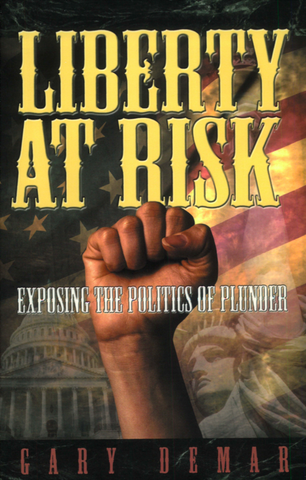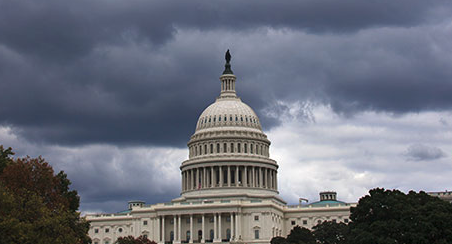Gary discusses international politics with Paul Edward Stevenson, a radio host from Britain.
A careful reading of Scripture will show that the State (civil government) has almost no authority to regulate education, business, welfare, and ecclesiastical affairs. For example, the only time education of children is taken on by the State is when the people of God are held captive by a pagan government (Dan. 1:1-7). Jurisdiction of education is given to parents (Deut. 6:4-9), not the State. A legitimate educational function of the State would be military academies. The State certainly has jurisdiction to punish fraudulent business practices, but it does not have the authority to determine who a business must hire or how much it should pay in wages.
Caring for widows is another concern. The responsibility first lies with family members. This is why Paul makes a distinction between “widows indeed,” who have no family or who have families that refuse to care for them and widows who have family members who can help out: “Honor widows who are widows indeed; but if any widow has children or grandchildren, let them first learn to practice piety in regard to their own family, and to make some return to their parents; for this is acceptable in the sight of God. Now she who is a widow, indeed, and who has been left alone has fixed her hope on God, and continues in entreaties and prayers night and day” (I Tim. 5:3-5). The church is to step in and help those widows “who are widows indeed.” Their hope is fixed “on God.” The church is God’s special representative on earth. God’s provision comes through the church in tithes and offerings of the people. The State can best help widows by not taxing inheritances.
Some of Jesus’ harshest words are for children who put their parents’ lives in jeopardy. He pronounces the death penalty on unfaithful and self-righteous children who neglect caring for their parents: “You nicely set aside the commandment of God in order to keep your tradition. For Moses said, ‘Honor your father and your mother’; and, ‘He who speaks evil of father or mother, let him be put to death’” (Mark 7:9, 10). Notice that this law does not apply to infants and young children. Jesus applies the law to children who actually are in a position to jeopardize the life of their parents. The apostle Paul says that those who fail to care for their own family members are “worse than unbelievers” (I Tim. 5:8).
The State is not called on to feed the hungry and clothe the naked except as wartime measures. You will not find instructions in the Bible that gives jurisdictional authority to the State to establish a wealth transfer welfare system. What the State ought to do is keep the marketplace open. This means the abolition of minimum wage laws that keep the less skilled from entering the work force; the reduction of taxes at all levels; the elimination of Social Security taxes on those just entering the work force (this alone would add more than 12% to their income to save and invest as they choose); phasing out Social Security for employers and employees already in the system; and the elimination of all entitlement programs that keep the poor dependent on the Parental State.

Liberty at Risk
Without a proper understanding of civil government's biblical function and limited jurisdiction, Christians can be trapped into believing that civil government should promote policies beyond its designed purpose as long as they are for "the good of the people." This reasoning can lead many to choose security no matter what the cost to liberty. In Liberty at Risk, Gary DeMar presents a biblical, historical, constitutional, and rational approach to government. Not only has God set forth the principles of liberty in the Bible, He has also equipped us to think through the implications of these principles. Civil government is ordained by God, but it should never be made into a god.
Buy NowGary discusses international politics with Paul Edward Stevenson, a radio host from Britain. Political bureaucrats are the same all over the world and desire to have power in order to maintain control. While the promises are always to fix whatever is wrong, the result is always more government intrusion and loss of freedom.

